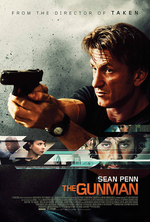Film Screening 8th August, 2015

Shaun the Sheep Movie
7:00 PM, 8th August, 2015
- G
- 85 mins
- 2015
- Mark Burton, Richard Starzak
- Mark Burton, Richard Starzak
- Justin Fletcher, John Sparkes, Omid Djalili, Richard Webber
If the only reason you might watch a movie is because it has witty and/or profound dialogue, then Shaun the Sheep Movie is not for you. No one speaks a single recognisable word, not even the human characters.
Nevertheless the movie is both witty and profound. The profundity comes from its central theme of celebrating friendship while its wit is inspired by the silent movie gags of Buster Keaton. The gags range from the obvious (disguised sheep burping in a restaurant) to the subtle (look for a reference to the classic The Shawshank Redemption).
In the television series Shaun and his supporting cast reside on a farm, but the plot of the movie is expanded by relocating most of the action to the Big City. Further complicating the plot is a head injury suffered by Shaun’s farmer, causing amnesia. The credits correctly warn that head injuries are serious things, and equally correctly invite the audience to donate to a head injury charity. Stay until the very end of the credits for an amusing bonus scene.
Due to their meticulous nature, most stop-motion animated (also known as claymation) movies take years to shoot, but Shaun the Sheep Movie took only nine months. Co-director Mark Burton observed that “Nine months is lightning speed!” He also said “If anyone utters another sheep pun, bleat me.”
Richard Hills

The Gunman
8:35 PM, 8th August, 2015
- MA
- 115 mins
- 2015
- Pierre Morel
- Don MacPherson, Pete Travis, Sean Penn
- Sean Penn, Idris Elba, Javier Bardem, Ray Winstone
As part of a team of mercenaries in the Democratic Republic of the Congo, Terrier (Penn) draws the short straw and is ordered to assassinate the country’s Minister for Mines, after which he has to instantly flee the country and abandon the aid worker (Jasmine Trinca) with whom he was falling in love.
Years later, a contrite Terrier is back in the Congo, working for an aid organisation himself in an attempt to atone for his past crimes – and this time the assassins come for him. Again he flees, and spends the rest of the film darting around Europe, mostly Spain, trying to find out who, why and what he has to do to make it all stop.
Like many a film with Liam Neeson or Bruce Willis or Jason Statham, the moral might be “don’t mess with the old codger who was, after all, trained to kill people,” although Penn plays the role with more sadness. He knows he’s sinned, and he has no excuse, and probably even accepts that he deserves what’s coming to him – not that he has any intention of getting hurt if he can help it.
The Gunman started life as a bleak existential French crime novel by Jean-Patrick Manchette, but was adapted by the director of Taken, and the end result may not satisfy anyone who wants it to be a pure version of either genre (more action-packed than the former, more melancholy than the latter). I found the mix works well.
Henry Fitzgerald